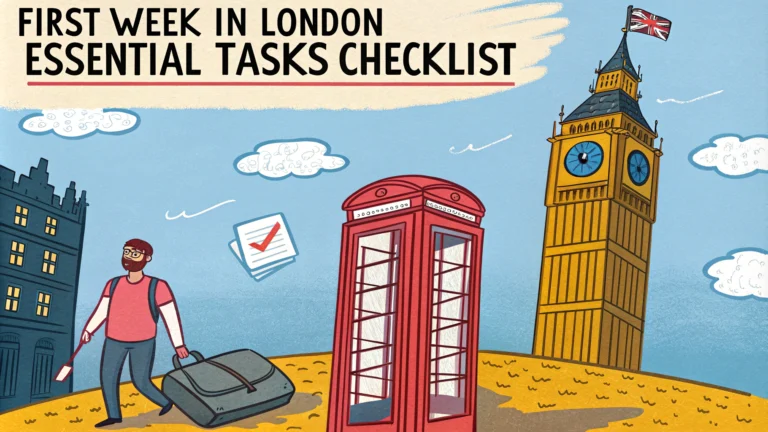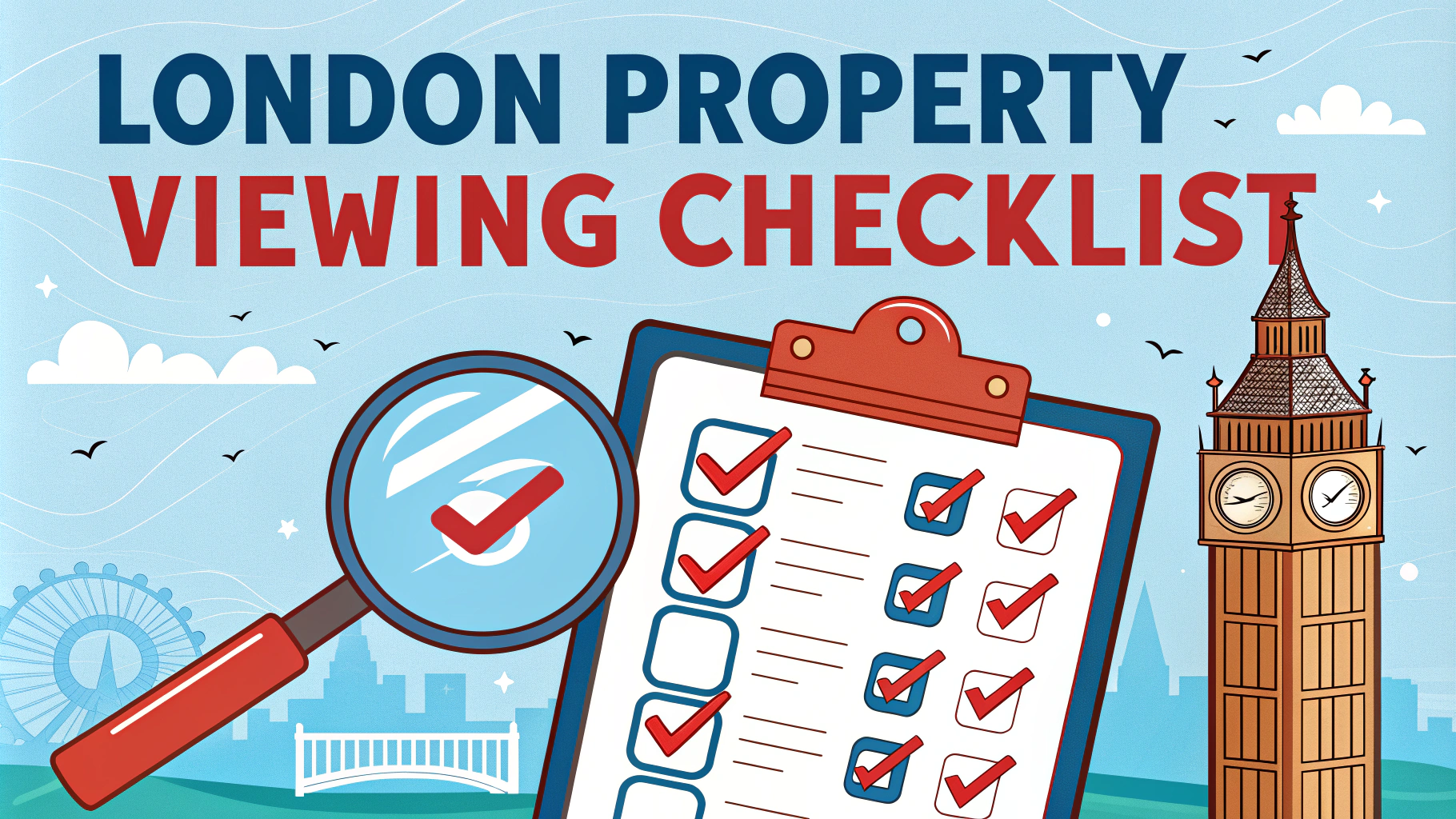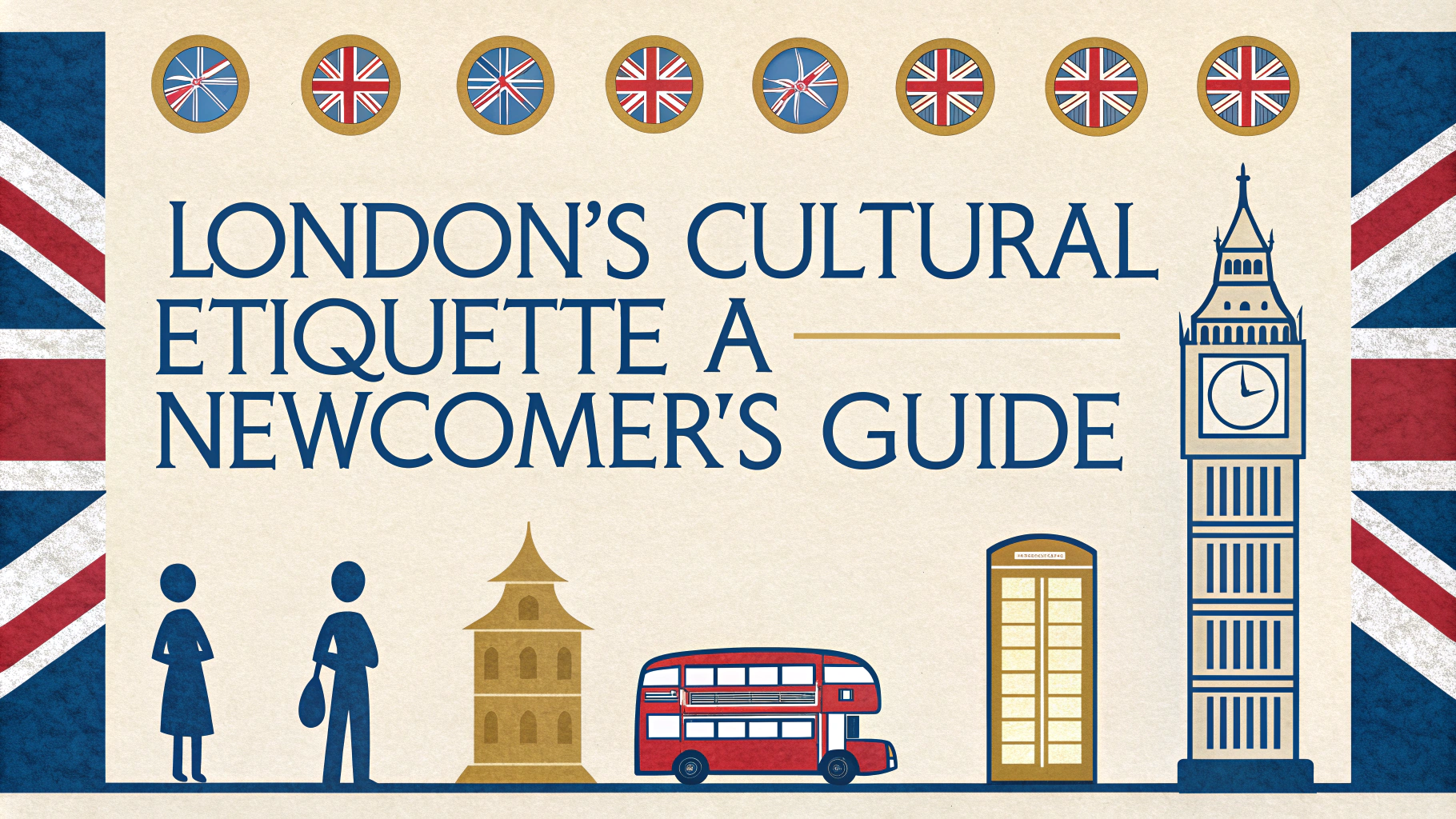Getting settled in London during your first week requires careful planning and organization to ensure a smooth transition.
This checklist covers the essential tasks you’ll need to complete right after arriving, from setting up basic utilities to registering with local services.
Following these steps in order will help you establish your new life in London efficiently while avoiding common pitfalls that newcomers often face.
Day 1-2: Immediate Priorities
- Get a UK SIM card from providers like EE, Vodafone, or Three
- Exchange currency or set up initial banking access
- Purchase an Oyster card for public transport
- Buy essential household items
Banking Setup (Days 2-3)
Schedule an appointment with a bank – major options include Barclays, HSBC, Lloyds, or NatWest.
- Required documents:
- Passport
- Proof of address (rental agreement)
- Employment contract
- Visa (if applicable)
Healthcare Registration (Days 3-4)
Find and register with a local GP (General Practitioner) through the NHS website.
- Documents needed:
- Proof of address
- ID
- Immigration status documents
Council Registration (Days 4-5)
- Register for Council Tax with your local borough
- Apply for any available exemptions or reductions
- Set up electoral registration if eligible
Utilities Setup
| Utility | Recommended Providers |
|---|---|
| Electricity/Gas | British Gas, EDF, E.ON |
| Internet | BT, Virgin Media, Sky |
| Water | Thames Water (most of London) |
Transport Arrangements
- Download essential apps:
- Citymapper
- TfL Go
- National Rail
- Consider getting a weekly/monthly travel card if commuting regularly
Local Area Orientation
- Locate nearest:
- Supermarket
- Pharmacy
- Post Office
- Police Station
Getting Connected
Research and compare broadband providers through comparison sites like uSwitch.
- Popular providers:
- BT Broadband (widespread coverage)
- Virgin Media (faster speeds)
- Sky Broadband (TV packages)
Setting Up Your Home
Find nearby stores for home essentials:
- Affordable options:
- Argos
- IKEA
- Wilko
- Primark Home
Next Steps for Week Two
- Schedule language classes if needed
- Join local community groups
- Explore neighborhood amenities
- Set up regular bill payments
Local Resources & Support
Building a local support network and knowing where to find assistance can make your transition smoother.
- Community centers offering:
- New resident meetups
- Local information sessions
- Cultural integration programs
- Language exchange groups
Administrative Tasks
- Register with local libraries
- Update address for important documents
- Set up recurring payments for:
- Rent
- Council tax
- Utilities
- Phone bill
Safety & Emergency Contacts
Save important emergency numbers:
- Emergency services: 999
- Non-emergency police: 101
- NHS non-emergency: 111
- Local council helpline
- Building management/landlord
Cultural Integration
- Download useful London apps:
- TimeOut London
- OpenTable
- Meetup
- Eventbrite
- Join local Facebook groups
- Subscribe to neighborhood newsletters
Making London Your Home
Remember that settling into London takes time and patience. Focus on completing essential tasks first, then gradually expand your local knowledge and social connections. Keep important documents organized and maintain copies of all registrations and agreements. With proper planning and this systematic approach, you’ll soon feel comfortable navigating life in your new city.
- Key reminders:
- Keep all important documents safely stored
- Maintain a contact list of local services
- Stay informed about neighborhood events
- Build your social network gradually
- Explore your local area systematically
FAQs
- What are the first essential documents I need to sort out upon arriving in London?
Register with a GP (local doctor), obtain a National Insurance Number (NINo), and open a UK bank account. - How do I register with a local GP in London?
Find a nearby GP surgery using NHS.uk, bring proof of address and ID, fill out a GMS1 form at the practice, and wait for confirmation of registration. - What’s the quickest way to get an Oyster card for London transport?
Purchase an Oyster card at any tube station, larger National Rail stations, or London Transport Visitor Centers. You’ll need to pay a £7 deposit and add credit. - How long does it typically take to open a UK bank account as a newcomer?
2-3 weeks on average. You’ll need proof of UK address, ID, and possibly proof of immigration status. Some banks offer basic accounts for new arrivals. - Do I need to register with my local council when moving to London?
Yes. Register for council tax and electoral roll with your borough council. You can do this online through your local council’s website. - What’s the process for getting a National Insurance Number in London?
Call the National Insurance Number application line (0800 141 2075), complete a phone interview, and attend an in-person appointment if required. - How do I set up utilities in my new London home?
Take meter readings on move-in day, contact the existing suppliers initially, then compare prices using comparison websites to switch if desired. - What emergency numbers should I save when moving to London?
999 for immediate emergencies (police, fire, ambulance), 101 for non-emergency police matters, and 111 for non-emergency medical advice. - How do I register to vote at my new London address?
Register online at gov.uk/register-to-vote with your National Insurance Number and basic personal information. - What’s the process for updating my address on my driving license?
Update your address online at gov.uk/change-address-driving-licence or by post using a D1 form. This is free and should be done within 14 days of moving.








